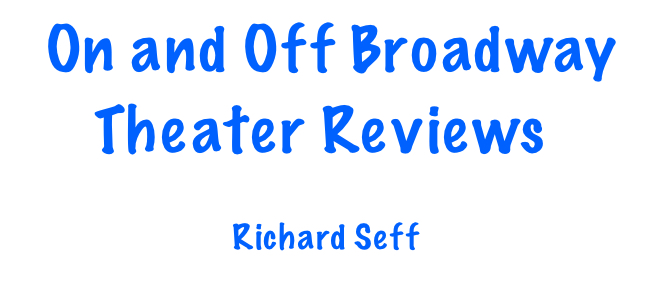What we have here on Broadway at the Ethel Barrymore Theatre is a consortium of over FIFTY “producers” who gathered together to sponsor a musical comedy–something to which they could take their mothers-in-law, little family members, teenagers and their teenaged dates, and friends who might get a kick out of their efforts. Their target audience was the vast majority of good folks who rarely see live theatre, unless it is presented in their kids’ schools or in their local drama club’s auditorium. What they relish is undemanding mirth and merriment, preferably something announcing itself as “a new musical” (meaning not a revival), something with a professional sheen to it. In order to achieve this there would be sprinkled with them a familiar name or two among the creative credits. In this instance they’ve hired pop writers Barry Manilow and Bruce Sussman whose credits are heavily weighted with recognition in other areas of the musical world. Mr. Manilow has mentioned that Harmony on which he is the composer and arranger is the “most rewarding creative experience” of his career. Mr. Sussman has enjoyed a half-century collaboration with Mr. Manilow during which they have produced over 200 songs that have been featured in many films, many of them best selling hits.

Their musical begins with a greeting from an ex-Rabbi played by Chip Zien who was welcomed by the audience who knew and liked him in Into The Woods and many other theatre pieces on and off Broadway. Sierra Boggess and Julie Benko joined him as the book began to involve other characters who helped to tell the story of how he had joined together a group of singers into an act known as “Comedian Harmonists.” It was formed in 1929-1930 and became an international success until 1935 when Germany, becoming Nazified, forbade this group, which was comprised of six members three of whom were Jews, to appear anywhere on German controlled soil. The memory of the “Comedian Harmonists” became soon forgotten and had pretty much remained so until now.

The group and its story were new to me, and I wish that this true tale had been rewarded with a score and lyrics that could match the power of the story along with a book that presents its cast with subtlety and insight and even humor when needed. But Mr. Zien and the female supporting cast all played with shouts and more shouts as the tensions mounted. The original score was composed of splashy rhythmic variations to which Choreographer/Director Warren Carlyle supplied acrobatic floor thumping choreography most effectively. The twenty plus songs were energetic and bombastic, but the far too predictable Sussman lyrics were simply not stage worthy. ”This Is Our Time” is one subject better served By Steven Sondheim in one of his scores; and though the orchestrations and staging are all lively, they are more the sort we’re more accustomed to in revues than in book shows because they do not enhance the plot; nor do they offer any wit, wisdom, inspiration or even much fun. Here is a show with a little known story worth telling, but it proves once again that over fifty producers do not make one with the vision of a Ziegfeld, a Hal Prince, a Cy Feuer, a Robert Fryer, an Alex Cohen or even a David Merrick.
